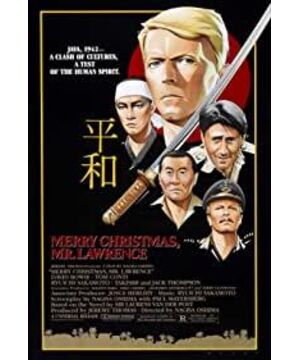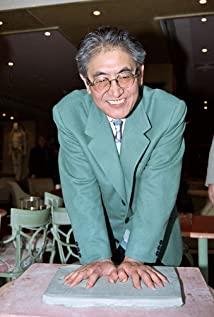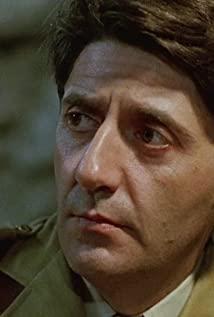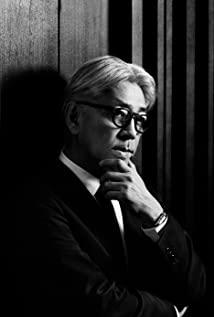"Merry Christmas on the Battlefield" (hereinafter "Fighting") is translated by the Japanese title "戦場のメリー・クリスマス", and the English title is translated as "Merry Christmas, Mr. Lawrence", adapted from the English novel by Laurens Van Der Post "The Seed and the Sower", which means "The Seed and the Sower".
The film is the penultimate feature film of Japanese director Nagisa Oshima, and his first cross-language and cross-country co-production film. In the early stage, Nagisa Oshima, as the standard bearer of the new wave of Japanese films, devoted himself to discussing the theme of nation and life and death. His works have distinct anti-rightist colors and profound social insights, such as "Japan's Night and Fog", "Ritual", "The Cruelty of Youth" Story". "Sensual World" is his representative work that shocked both inside and outside. Because of the use of "excessive" real and unmasked sex scenes to express women's repression and desire, the film itself suffered the same violent ethical controversy as the content of the film. In short, after photographing all the strange things in Japan, he began to look abroad, using the writings of foreign writers on Japanese culture and the collision of Eastern and Western cultures to explain his reflections on the country, war and nation. This determines that the work "Fighting Fast" must be a bridge of commercialization, experimentation, and full of dramatic fusion.
"Fast War" is based on the Pacific War of World War II and tells the stories that happened in a Japanese prisoner of war camp on the island of Java in 1942. Among them, the relationship between Captain Yonoi, played by Ryuichi Sakamoto, and Jack, a British captive officer played by David Bowie, is even more interesting. And here I want to talk about a supporting role - the original sergeant played by Takeshi Kitano .
The role of the former sergeant is Kitano Takeshi's first role in his acting career, and it is also his best performance, I am afraid it is not one of them. In his later self-directed and self-acted works, the emotions of the characters were sealed by his own "cut aesthetics", not to mention that he later suffered from facial paralysis. But what we see in "Fight Fast" is a simple, honest, rude and lively grassroots soldier. When he said "Merry Christmas, Mr. Lawrence" at the end, the mood of the movie was pushed to the final climax by the lines and music, and his tearful smile was also frozen - I don't know how many people were touched by this close-up. .
It was originally a subordinate of Captain Yonoi and assisted him in managing the prison camp, but the two were very different in their class backgrounds. Shinojing was from a prominent background, received a good cultural education, abstained from sex and solitude, and was good at kendo and meditation; but he was originally a rural peasant, so he behaved in a vulgar, arbitrary, and narrow-minded "country bumpkin" style. Influenced by militarism and nationalism, he used to claim that he had already handed over his life to the emperor when he enlisted in the army. Facing so many prisoners of war in the camp, he pretended to be a victor and an absolute correct person , laughing at the surrendered British soldiers. They are all "cowards who are greedy for life and fear death and have no shame".
The two camps that go head-to-head on the battlefield are always absolutely opposed, and the prison camp is no exception. The Japanese army did not abide by the Geneva Convention, and naturally did not treat the prisoners as human beings. Yuan never showed mercy to the beatings and humiliation of prisoners of war, so he was also called "the hateful Japanese devil" by the British soldiers. However, for peasant soldiers from the bottom, in the absence of Bushido spiritual upbringing and ideological justification for their own actions, patriotism and war beliefs are often more vulnerable. Therefore, Yuan appears to be closed, vulgar, and deeply rooted in prejudice, but in fact he is in a state of ignorance and unconsciousness. Lawrence, a British prisoner of war, also knew this well: there are many kinds of evil, one is extreme evil, that is, after getting rid of the confused state through knowledge and speculation, he still chooses evil consciously and purposefully, and the other is the former sergeant This kind of "banality of evil" is to give up thinking, escape confusion, and follow evil unconsciously. Subsequent stories tell of Lawrence's awareness of these "bad things" in the Japanese national character.
At first, scandals spread between North Korean guards and Dutch prisoners in the camp. Lawrence, who is proficient in Japanese, approached Hara and asked him to protect the captives from bullying, saying that war can make men feel comradely, but this does not mean homosexuality. The principle arrogantly stated that the Japanese soldiers never asked the enemy for help, and had no sympathy for same-sex feelings, and mocked the British as gays.
Later, Yuan chatted with Lawrence on patrol and asked why Lawrence did not commit suicide, but would rather endure the humiliation as a prisoner . Lawrence said that suicide is a cowardly act, and that surrender is just an involuntary wait for a turning point .
Later, the Japanese dealt with the two soldiers suspected of sodomy as usual. The two were forced to cut their abdomens and commit suicide. Lawrence was disappointed. After this incident, there was chaos in the camp, and Genojian punished all the prisoners for two days and two nights without food or drink. During this period, Jack took the lead in publicly worshipping the dead comrades in the wounded barracks and was arrested. At the same time, the Japanese also found a radio in the wounded and sick camp, and Lawrence, who pleaded for Jack, was also imprisoned.
A few days after the escape incident, Lawrence was called by Yonoi to the Japanese officer's dojo, where he was chanting scriptures. Yonoi informs Lawrence that they will force him to confess to the crime of possession of the radio and put him to death. The Japanese believe that if you are guilty, you will be punished. Even if you can't find the real culprit, you must have a scapegoat, otherwise you will be sorry to the gods. Feeling the deep malice, Lawrence collapsed, cursing the beliefs of the Japanese in desperation, overturning the rankings on the table. Yuan was still sitting on his knees, not saying a word.
The conflict between the two camps has reached a third peak after the death penalty and worship incidents. Lawrence finds that his harmonious way of life has come to a dead end, and any affection and reason will be destroyed in the fanatical paranoia and extreme opposition . Even if the language is the same, communication is futile and ineffective.
The turning point of things came on Christmas Eve. This scene consisted of simple close-up front and back shots, but the presentation of the characters was worth scrutinizing. Lawrence and Jack, who were ready to die, were suddenly taken to the conference room and found that Yuan was waiting for them drunk. Lawrence breathed a sigh of relief and said in English, "So Sergeant Hara, you are a humin after all." Yuan became nervous and asked what he was talking about. Lawrence said again in Japanese: "Sergeant Yuan is a human after all." Yuan Sui laughed happily and asked, "Mr. Lawrence, do you know Father Christmas?" Jack looked at Lawrence, as if he didn't know what to do cloud. Yuan immediately showed an embarrassed look on his face.
Lawrence replied, of course, Mr. Yuan, you should be talking about Santa Claus (the correct name for Santa Claus). Yuan Sui laughed at ease and said, "That's right! I am Santa Claus today! Then he burst out laughing and released the two of them. He stopped when Lawrence was being carried out the door, saying earnestly in broken English: " Merry Christmas , Lawrence, Merry Christmas."
The next day, Hara confessed to Yonoi that he had found the real murderer who had hidden the radio because of the investigation, and was so happy that he was so drunk that he let them go on his own initiative. World Noi let Yuan self-consciously shut down for a day.
Lawrence brings a turn for Yuan, and at the end of the event, Yuan brings a turn for Lawrence. On Christmas Eve, Lawrence called the original Mr. Yuan (not the former sergeant), and Lawrence changed from being an enemy of original sin to Mr. Lawrence who needs to defend his rights. The strict sense of order in Japanese culture was temporarily dissolved. It was originally happy to release Lawrence, happy to be Santa Claus, and the harsh confrontation between enemy and self was broken by the warmth of the festival and the addition of alcohol.
At the end of the film, after the war, Lawrence, who has recovered his status as an officer, comes to visit Yuan, who has become a war criminal and is about to be executed the next day. The position of victory and defeat changed, and when the two talked about Christmas that year, they couldn't help but smile. It wasn't Christmas at this time, and even though Lawrence thought, he didn't have the right to play Santa Claus and let him go. But Yuan still stopped him and said the sentence of the year: "Merry Christmas, Mr. Lawrence." ("Merry Christmas, Mr. Lawrence.")
"Christmas" belongs to an unfamiliar cultural realm, commemorating the birth of Jesus, representing love, peace and reunion, and symbolizing the opposite of the Japanese attitude during wartime. Yuan obviously knows very little about this, so he can only use a few words of knowledge (Christmas) to carefully test and invite the other party into the context of "Christmas" on his own battlefield. Using the distinctive Western cultural symbol of "Santa Claus" as a "step" to perform "good deeds" is an expression of the inability to find the corresponding vocabulary in the tense and paranoid ideological context of oneself, and it is also to respect the words of the enemy an attempt to accept "love" .
To express this cross-cultural experimentation, language and speech are a perfect tool. The use of non-native languages is generally used in films to shape the character’s background, or to facilitate the audience’s understanding. In this film, it becomes the embodiment of power relations: the function of language to interpret the spirit and emotion is internalized in the text. middle. Lawrence had been communicating with the former Sergeant in Japanese in the prison camp. Although he has the ability to express his views without being humble or arrogant, he still expresses the transfer of power when he uses the language of the enemy - even if he maintains the subjectivity, he still carefully articulates his words and relies on the opponent (indicating that he understands) Respond to get positive feedback. The former sergeant, who has been using his native language all the time, is careless and arrogant, outputting unpolished opinions casually and arrogantly. When two people speak the same language, the inequality of power in speech is very obvious.
However, in the famous scene of Christmas greetings, when Lawrence said a word of English to him, Yuan was disturbed, and the dominance of the communication was occupied from the beginning; when he tried to use English (Father Christmas) to initiate communication, The bewildered eyes of the other party made him even more embarrassed, worried that the other party could not understand him, so he gave up all his subjectivity. This is in stark contrast to the actual power relationship - Lawrence is a prisoner of war about to be executed, and the former sergeant is the commander who is about to decide whether to release them. But he clumsily conveys his sincere, loving invitation by ceding linguistic power and addressing himself with the other's cultural symbols. At this time, although Yuan changed their fate as a manager, the atmosphere of this dialogue has achieved a kind of dream equality under the background of "Christmas" context, drunk Yuan and wonderful music.
The director knows that the evil that the Japanese have shown in the war cannot be excused. What he wants to explore through the drunken Hara and the confused Yonoi (the protagonist) is nothing more than a string of codes that can resolve hatred and dispel his own national character. The antidote to inhuman fanaticism and paranoid stigma. In fact, this is precisely in the special intimacy brought about by the confrontation between day and night. The closed prisoner-of-war camp represented an environment in which the winner and loser were divided. The values of the victor were above and beyond doubt, and the strength of the opposing camps was very disparate. The gradually developed feelings between the officers and the prisoners have created a certain ambiguity and confusion in the two distinct atmospheres , which is actually a lowering of the posture for the "winners" . Lawrence sees it all. After the war, when he was on the victorious side visiting Yuan, Yuan kept his posture low and low (always lowered his head and spoke English), while Lawrence, who speaks his native language, sat humbly cross-legged on the ground and volunteered to be more than Yuan. A low position to guard the balance of their personality.
In Lawrence's view, no one is absolutely right, and the so-called victory is a hot potato . For those who are highly deprived in war, the most precious thing is that in the short but often regarded as eternal victory, in the unconscious blind pursuit of evil, it is still able to awaken the most primitive in the heart in an instant, even for a short time. empathy, and face the man-made order, confrontation and hatred with the simplest sensibility. Although he was only drunk that night, such a light flashed through him. Yuan said shyly, can I stay drunk all the time? But is human civilization always "awake"? I don't know which one is the result of drunkenness, war or peace. War is always ugly, people can only be drunk for a while, and people can only love for a while, and at this moment, they have surpassed "love", beyond the debate between right and wrong, the difference between "me" and "enemy" , Only in such a fusion did I see the possibility of peace - this is a cosmopolitan anti-war statement, a dreamy invitation.
A series of domestic and foreign events this year have made anti-Japanese nationalist sentiment especially high, and even this anti-war themed work has not escaped the spontaneous "One Star Movement" by netizens.
Nearly 80 years after the war, the attitude of the Japanese society and the right wing of the government has disappointed almost all Pacific Rim countries. It is a despicable act of worshipping war criminals and tampering with textbooks. Victims and aggressors passed away, demands and protests were ignored, and the remnants of the grievances persisted; as a last resort, suffering was condensed into monuments, memories were engraved into slogans, and the Internet was allowed to set off an empty storm of hatred, and their real bodies are already quietly, gradually left. Therefore, I am extremely pessimistic that our national sentiments have received a proper official response from the other party - not only the escape from the "opposite side", but also the feelings of "this side" are fermented and unbearable.
It's understandable that our hearts are born with the seeds of hatred being sown in bulk—it's an innate part of identity politics and nation-states. If people always have to hate something in order to exist, the state and nation help us choose an object by default, and if this is an absolute cruel evil, it is still better than randomly picking Zhou as a child. But I still advocate that people should have a basic re-understanding of it after adulthood, that is, the exact object of hatred, and the outbreak or sleep of this embryo, whether the individual embraces the collective memory with limited intelligence and recognizes and knows history. Root-seeking journey, or is it just a tool that depends on other people's thoughts? Geopolitical interests are intricate, and the power to construct historical discourse has never been assigned to every deprived civilian. Therefore, as an individual with a very small memory, when I impassionedly said, "Don't forget the national humiliation! Don't forget the national humiliation." !" At the time, what I said was to protect the seed in my heart independently. Take good care of it. It is an unchosen identity, but also a human being, a unique species obsessed with finding love and home, the dignity necessary to keep from being lost.
Merry Christmas.
View more about Merry Christmas Mr. Lawrence reviews











